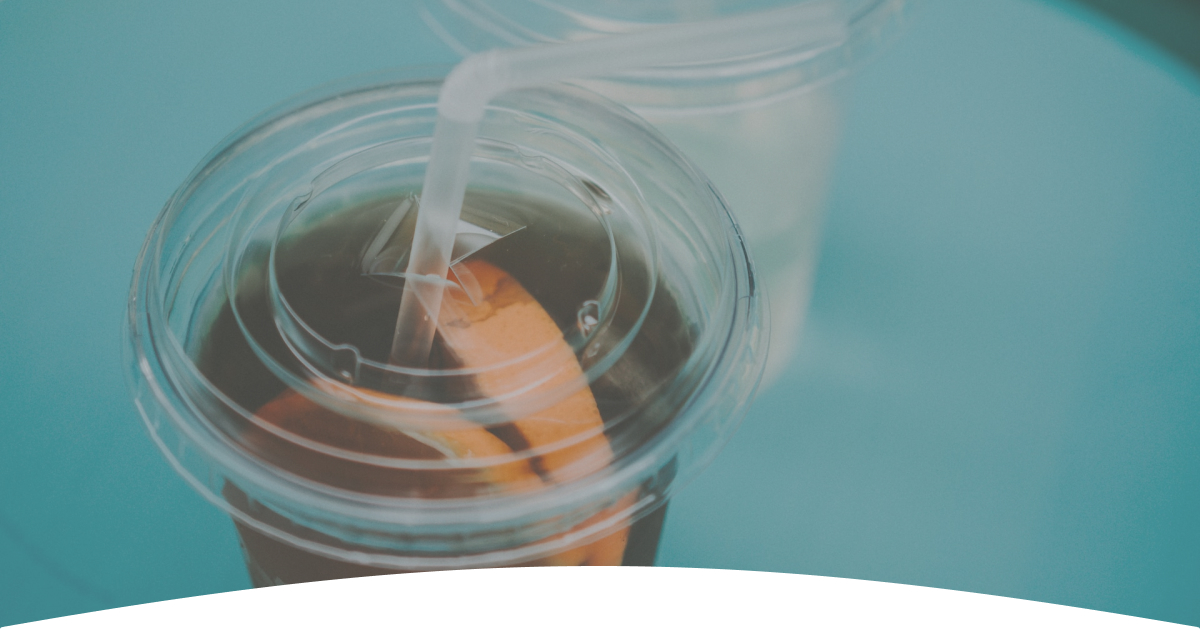
What is PCR? What is SUP? Industry Acronyms Big Corporations Don’t Want You to Know
BLOG
The road to adopting eco-friendly habits is paved with confusing acronyms and jargon. While researching what products to use, which brands have sustainable practices, and how to recycle and upcycle containers, you might encounter unfamiliar terminology, and end up worried about whether you’re actually able to make informed decisions.
Many terms are not thoroughly explained by the companies that use them. We want to make sure everyone is on the same page. Let’s go over some of the major acronyms you might find when researching brands and recycling practices.
What's SUP?
SUP, or single-use plastic, is plastic that is designed to be, well, single-use. It’s meant to be used one time and then discarded.
SUPs have a major impact on our environment, especially “virgin” SUPs, or plastics that are made from entirely new materials, as opposed to plastics made from recycled products. Many industries, especially the food industry, rely heavily on SUPs for producing, shipping, and storing products. Fixing the SUP crisis will require significant changes to many industries, either by switching to MUPs (more on those below) or making SUPs recyclable, biodegradable, or compostable.
What is MUP?
MUP stands for multi-use plastic. This is plastic that can be used again, either from repurposing the container into something else, or continuing to use it for the same purpose. Ideally, MUPs are also recyclable, so they can eventually be used to make something new, once the original object is past its prime.
Recyclable SUPs and MUPs can be used to make PCR plastic.
What is PCR?
PCR stands for Post Consumer Resin. It refers to a type of plastic that is made from previously used plastic - essentially, it is recycled plastic. It gives old plastic new life and prevents it from being landfilled.
PCR is normally made from PET and HDPE plastics, which are often used to make packaging for products such as milk jugs, plastic soft drink bottles, and shampoo. The containers are shredded into pellets, melted down, and reformed into a new shape.
Why have we chosen to use PCR?
Simply put, PCR is better for the environment than new “virgin” plastics, which are made from novel materials. Using PCR means less emissions are produced during manufacture, less non-renewable resources (such as petroleum) are used to form the plastic, and less single-use plastic is landfilled. Giving used plastic a new life is the best way to prevent it from polluting our environment.
Our 64oz soap refill bottles and refillable automatic dispensers are made of 80% ocean-bound PCR plastic.
What is ocean-bound PCR?
All plastic waste that has been landfilled or dumped has a chance of eventually ending up in the ocean. However, plastic litter that has been discarded at a non-official dumping site within 50km (about 30 miles) of the ocean has a higher chance of ending up in the water, and is considered “ocean-bound”.
Plastic in our oceans is a major issue. At least 14 million tons of plastic are dumped into the ocean each year, to the detriment of marine life as well as the whole rest of the ecosystem.
Why aren't we talking about SUPs?
Reducing single use plastic has been on the collective minds of our society lately, but measures to counteract SUP use have been lacking.
Moving towards a better future means tackling the “S” in “SUPs”, in favor of MUPs. MUPs don’t require nearly as many resources for production since less of them need to be produced, and they don’t end up in landfills since they’re not meant to be thrown out. But it will require time, effort, money, and resources to convert to using MUPs. For now, unfortunately, SUPs are hard to avoid completely.
We’re hoping to inspire you to turn your SUPs into MUPs by upcycling. We’ll be publishing lots of blogs with ideas for creative and fun ways to upcycle any plastic containers you have lying around. Check back soon, and be sure to sign up for email alerts if you want to know when we post our next blog.
In the meantime, shop our products and grab a PCR dispenser or refill!

